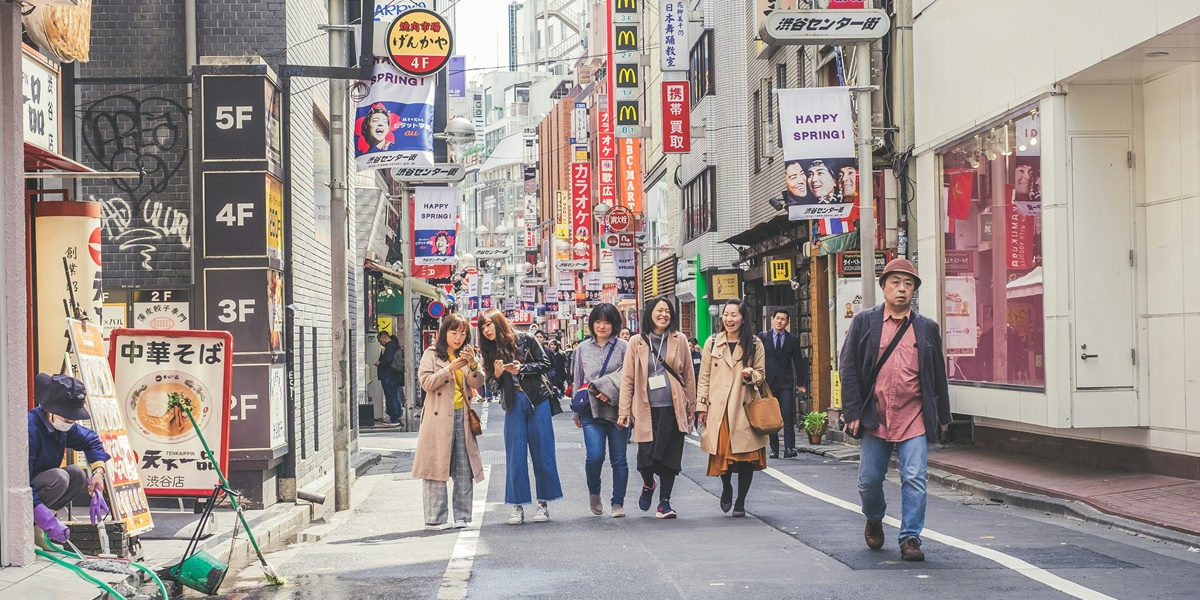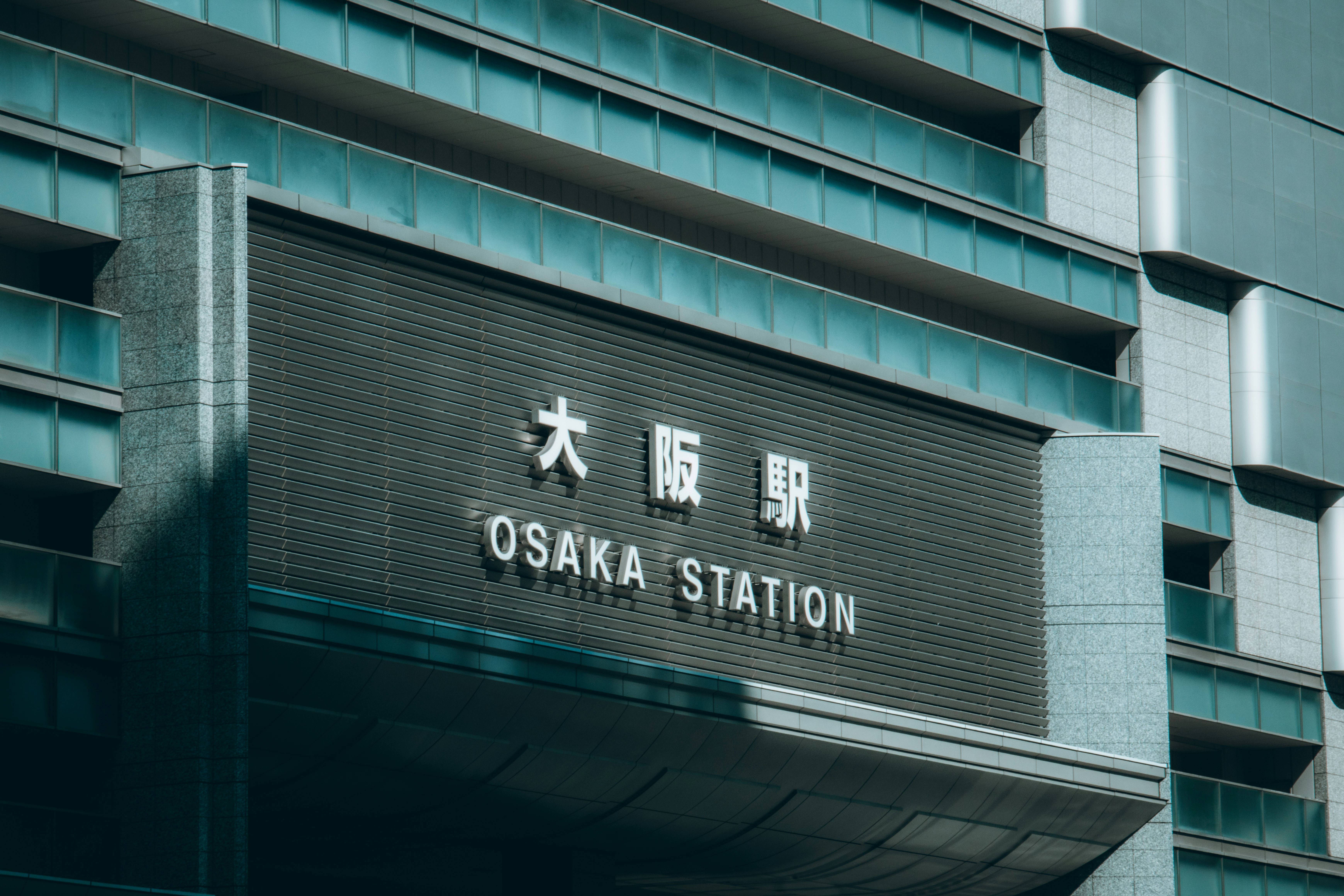Japanese Greeting Phrase "Selamat Sore" is Konnichiwa, Learn Other Important Greetings
So, what is the Japanese equivalent of "selamat sore"? Instead of being curious, let's find out by reading the following discussion.

Kapanlagi.com - Japan has long been one of the popular tourist destinations in the world. There are many reasons why people choose Japan as their travel destination, ranging from its unique culture to its delicious food. So, before visiting the Land of Sakura, it is important for tourists to learn daily vocabulary as a basic communication in Japanese language.
Because in Japan, especially in rural areas, there are still many residents who cannot communicate in English. Therefore, having basic knowledge of the Japanese language, including daily vocabulary, will greatly help tourists in communicating with the locals. There are several basic vocabulary that tourists need to know before traveling to Japan, such as greetings, places, and some verbs or activities.
To learn some daily Japanese vocabulary, just check out the following list:

Japanese Greetings (credit: unsplash)
Greetings are one of the important everyday vocabulary in the Japanese language that needs to be memorized. Greetings are often used as greetings or introductions to start a conversation. In Japanese culture, greeting is also part of politeness. Here are some greeting vocabulary in Japanese:
1. Hello = konnichiwa
2. Hello (used when making a phone call) = moshi moshi
3. Good morning = ohayou gozaimasu
4. Good afternoon = konnichiwa
5. Good evening = konbanwa
6. Welcome = yokoso
7. Goodbye = sayonara
8. Good night = oyasumi nasai
9. Bon appétit = itadakimasu
10. Thank you = arigatou
11. Excuse me = sumimasen / gomen nasai
As a tourist, there are several verb vocabulary that should be known before traveling to Japan. Here are some commonly used verb vocabulary in Japanese for tourists:
1. Depart = hananeru
2. Play = asobu
3. Prepare = junbi ga dekite
4. Come = kuru
5. Rest = kyuukei
6. Pay = shiharau
7. Buy = kau
8. Order = chumon
9. Stay = shukuhaku
10. Eat = taberu
11. See = miru
12. Sell = uru
13. Drink = nomu
14. Go = iku
15. Return = Ie ni kaere

Japanese Noun Vocabulary (credit: unsplash)
In addition to verbs, tourists should also master some noun vocabulary related to tourist activities. Here are some commonly used noun vocabulary in Japanese for tourists:
1. Supplies = kitei
2. Wallet = saifu
3. Schedule = yotei
4. Glasses = megane
5. Camera = kamera
6. Chair = isu
7. Souvenir = kinenhin
8. Desk = tsukue
9. Tour guide = gaido
10. Map = chizu
11. Bag = baggu
12. Ticket = chiketto
13. Hat = boshi
14. Money = okane
As a tourist, knowing the names of the places you will visit is a must. Here are some everyday Japanese vocabulary for tourist places:
1. Waterfall = taki
2. Mountain = yam
3. Zoo = doubutsuen
4. Temple = jiin
5. Mall = moru
6. Tower = tawa
7. Museum = hakubutsukan
8. Beach = kaigan
9. Traditional market = ichiba
10. Hot spring = onsen
11. Entrance = iriguchi
12. Exit = deguchi
13. Tourist information center = annaijo
14. Restaurant = resutoran
15. Park = kouen
16. Tourist spot = kankouchi
17. Souvenir shop = omiyageya

Japanese Common Place Vocabulary (credit: unsplash)
Not only to tourist attractions, in certain situations, tourists also sometimes need to visit some public places for various reasons. Here is everyday Japanese vocabulary for some common place names:
1. Airport = kuko
2. Bank = ginko
3. Bus stop = basutei
4. Hotel = hoteru
5. Bridge = hashi
6. Campus = kyanpasu
7. Office = jimusho
8. Police station = keisatsusho
9. Port = minato
10. Hospital = byoin
11. School = gakkou
12. Terminal = taminaru
13. Toilet = toire
In addition to verbs, tourists should also master some vocabulary related to tourism activities. Here are some Japanese nouns commonly used by tourists:
1. Food = tabemono
2. Wallet = saifu
3. Schedule = yotei
4. Glasses = megane
5. Camera = kamera
6. Chair = isu
7. Souvenir = kinenhin
8. Table = tsukue
9. Tour guide = gaido
10. Map = chizu
11. Bag = baggu
12. Ticket = chiketto
13. Hat = boshi
14. Money = okane

Japanese Vehicle Vocabulary (credit: unsplash)
When traveling, transportation becomes an important part. Therefore, when traveling to Japan, it is important to know the names of each type of transportation there. Here are some Japanese vocabulary related to vehicles or transportation:
1. Rickshaw = jinkirisha
2. Bus = basu
3. Train = densha
4. Subway = chikatetsu
5. Bullet train = shinkanzen
6. Ship = fune
7. Car = kuruma
8. Motorcycle = otobai or baiku
9. Airplane = hikoki
10. Bicycle = jitensha
11. Taxi = takushi
12. Truck = torakku
In order not to get lost, tourists also need to know the names of directions in Japanese. Here is the everyday Japanese vocabulary for each cardinal direction:
1. East = higashi
2. Southeast = nanto
3. South = minami
4. Southwest = seinan
5. West = nishi
6. Northwest = seihoku
7. North = kita
8. Northeast = hokuto
Those are some everyday Japanese vocabulary for tourists. Hope it's useful
(kpl/psp)
Cobain For You Page (FYP) Yang kamu suka ada di sini,
lihat isinya
So, what is the Japanese equivalent of "selamat sore"? Instead of being curious, let's find out by reading the following discussion.
There are many Korean dramas set in rural areas, KLovers. It is often highlighted for its beauty.
There are many hobby vocabulary in Japanese that can be learned, ranging from activities related to sports, fun activities at home, to outdoor activities. Curious about what hobby vocabulary in Japanese? To find out, just read the following review:
In the early stages of learning Japanese, the introduction of Katakana letters in the Japanese language is important.
Cool Japanese words are also suitable to be used as quotes on birthdays. Interested in writing birthday greetings in Japanese? If yes, just take a look at the following list:
There are several words in the Japanese language that can be used to describe delicious food. Here are some examples:
Here is the synopsis of anime KOMI CAN'T COMMUNICATE season 1 and 2 that you can read before watching the anime.
For those of you who want to watch the anime KURO NO SHOUKANSHI. Here is the complete synopsis of the anime KURO NO SHOUKANSHI along with the list of its cast.
From classic fairy tales to ancient legends, cultural heritage and mythology are often told in Disney films. Here is a list of Disney films containing cultural and mythological elements that are exciting to watch.
Through complex storylines and charming characters, viewers can witness Chinese dramas that recommend rekindled love. Here are the recommendations KLovers.
From unexpected encounters to fighting together against obstacles, here are Disney film recommendations about friendship.
There are several exciting and heartwarming Indonesian films released in March, April, and even May 2024. Check out the recommendations here, KLovers.